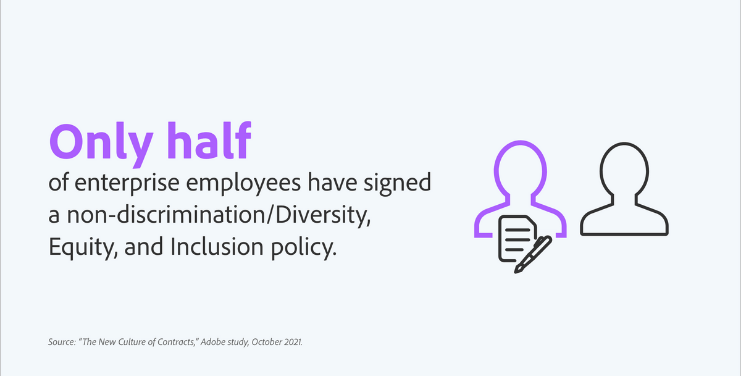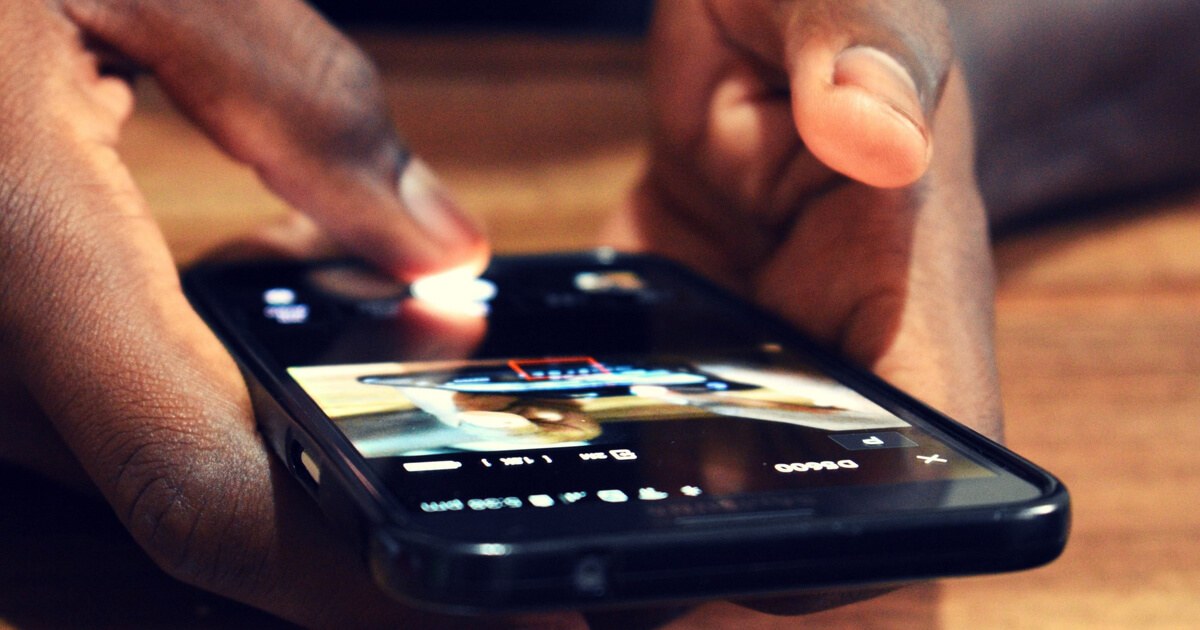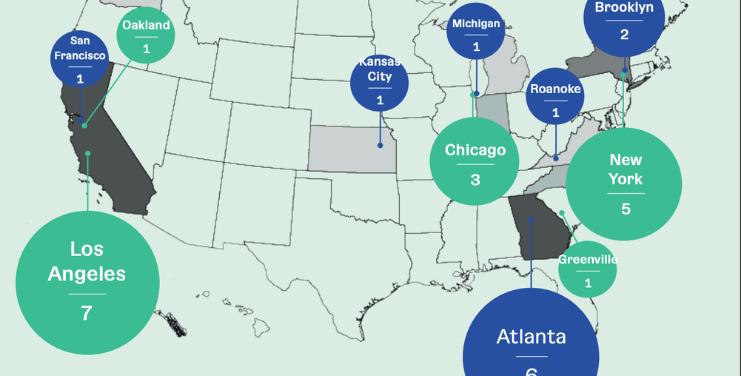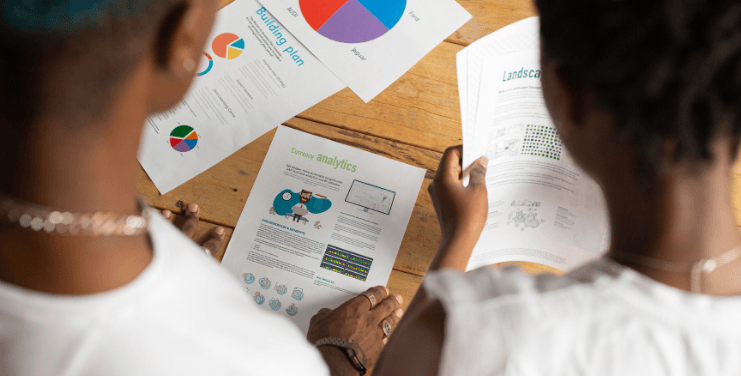KEY INSIGHTS
- While two-thirds of employees around the world have digitally signed a code of conduct or workplace rules agreement, only half have signed a non-discrimination or DEI policy.
- Organizations can help improve inclusivity by establishing more DEI policies, Adobe said, especially as U.S. companies grapple with a recent quitting spree.
- Half of employees have had to sign COVID-19 health agreements, while 37 percent say they have not but would be willing to if asked.
As the world has rapidly changed over the past two years, so has the way we work. The pandemic has pushed more jobs to be fully online and the racial reckoning after George Floyd’s murder pushed businesses to reevaluate their diversity, equity and inclusion practices. Now, a new Adobe study of 1,400 enterprise workers across the U.S., U.K. and Australia shows that while two-thirds of employees around the world have digitally signed a code of conduct or workplace rules agreement, only half have signed a non-discrimination or DEI policy.
Since Floyd’s death, American companies have committed $50 billion towards racial equity, according to a study by Creative Investment Research. But as of May, only $250 million of financial commitments (about 0.5 percent) have been honored, with many of the commitments pledged by corporations expected to play out over the next few years.
While codes of conduct and workplace rules agreements may also include sections about diversity, organizations can help improve inclusivity by establishing more DEI policies, Adobe said, especially as U.S. companies grapple with a recent quitting spree.
Black and Hispanic workers are leading the charge of looking for better opportunities, with 67 and 82 percent of workers looking for new jobs respectively, according to an August survey by PwC. While a majority of Black and Hispanic workers are actively looking for new opportunities, data on all workers suggests many are taking the plunge and leaving their jobs. Job openings across industries increased by 6.5 percent between the second and third quarters, with both low-wage workers and knowledge workers quitting at high rates.
But it’s not just DEI agreements that can make employees feel seen and included — even the language companies use in these contracts can have an impact. According to Adobe, 38 percent of employees have seen agreements that use gender binary language, i.e. language that only refers to male or female. Twenty-five percent have also seen limited fields or options to authentically describe their race, ethnicity, gender, religious beliefs, sexual orientation, ability or disability.
Minority workers are more likely to catch outdated, inappropriate or incorrect language in workplace agreements. Twenty-three percent of minority employees in the U.S. say they’ve seen incorrect language to refer to race, ethnicity, gender and more, while just 12 percent of non-minority employees in the U.S. say they have seen incorrect or inappropriate language.
But words matter. More than half of employees want more inclusive fields to describe themselves and less gender binary language when they are signing agreements with their companies.
“[T]he world is changing, and our company agrees with bringing your whole self to work. The use of less gender-binary language would assist associates in feeling more supported,” a survey respondent said.
People want more agency, too. Around 40 percent of employees said they wanted more options to break digital agreements if they did not align with political or religious beliefs. Nearly three-fourths say they would like more options to break the agreements if they jeopardize their health or safety.
This is especially important as many employees and employers continue to navigate whether to return to in-person work amid the pandemic, and if so, how. Half of employees have had to sign COVID-19 health agreements, while 37 percent say they have not but would be willing to if asked and 10 percent say they have not and would not sign a COVID-19 agreement.
As the future of work changes, improving digital workspaces to make them more inclusive matters more than ever.








